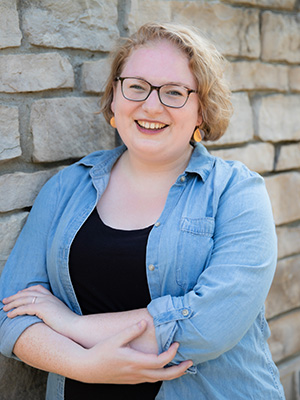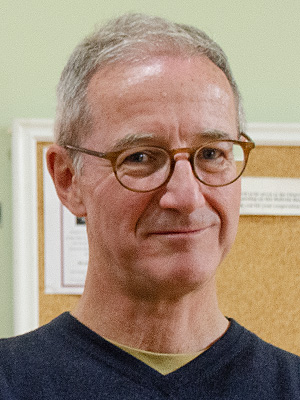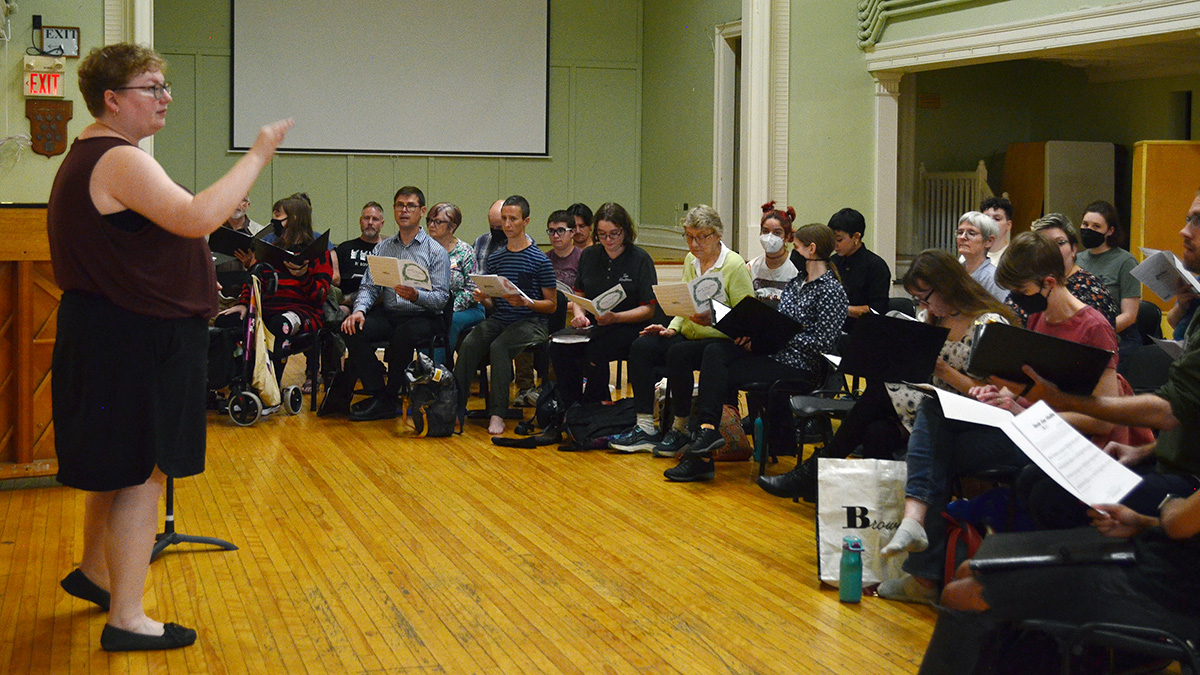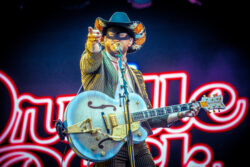On a drizzly September afternoon, a colourful medley of 30 singers harmonized holiday carols under the fluorescent lights of a back room at Knox Presbyterian Church on Lisgar Street in Ottawa. This was just this group’s second rehearsal, but these singers are bound together by a deeper community history.
Four years ago Deirdre Kellerman became artistic director of Tone Cluster, an 2SLGBTQIA+ choir that is now beginning its 30th season. Kellerman said the group’s success is because of the choir members and the connections they have built.
“I obviously love making music with these people, but it’s so much more than that,” she said. “I just love spending time with them and seeing how they care for each other.”
Tone Cluster started as a “gay madrigal group” in 1994. At the time, the name was temporary and “no one was thinking about what the future might hold for the choir,” according to their website.
Kellerman said that, from there, Tone Cluster “just kind of took on a life of its own.” She said the choir has seen several conductors pass the baton, all with their own distinct style and artistic vision, but the core objective always remained.

“In the queer community, we talk about chosen family a lot. And that is a concept that plays a big part into Tone Cluster,” she said.
“Even in the first few weeks of a new season, you can still feel the love and respect in the room even when they don’t know each other perfectly yet.”
Today, the choir consists of 50 members who represent a range of ages, sexual orientations and gender identities, including straight allies.
“I’m enjoying carving out what my era of Tone Cluster is looking like,” Kellerman said.
Roger Butt joined Tone Cluster 29 years ago as a gay man looking for a small, community-based choir. For him, something that makes Tone Cluster special is its element of protest.
“It’s an opportunity for people to be fully themselves and use music as a vehicle for social change in some cases,” Butt said.
He said that over the years, the size of the choir is one of the most notable changes he observed.
“We’ve gone from being a fairly minor part of the LGBT community in Ottawa to being quite a significant part,” Butt said.
Kellerman said that growth happened quicker than expected. The choir’s strategic plan aimed for 50 singers by 2027, which they achieved this year with a small waitlist.
She also said more young people are turning up to auditions since the pandemic, after feeling “particularly isolated and interested in finding community.”
Theresa Graham, a 23-year-old who joined Tone Cluster this year, said they signed up for an audition almost immediately after finding out about the choir at Ottawa Pride in August.


“I was getting involved in queer things but I didn’t really have a lot of friends yet, so now I’m starting to branch out and feel like I have a space,” they said. “Bringing music into that makes it feel so much better.”
For Graham, designated safe spaces like Tone Cluster “make a world of difference” for people who may feel excluded in other communities.
Kellerman also pointed to the group’s cross-generational atmosphere as “one of [her] favourite things” about the choir.
“It’s interesting to be working with a group of people where some people survived the AIDS crisis, lost people, partners and friends, and then also singing and becoming friends with people who have no idea what the AIDS crisis felt like but are in the middle of gender politics right now.”
And despite the adversity their community faces, the choir continues to make their voices heard. This season, their lineup includes a holiday concert at the Gladstone in December and a collaboration with the Ottawa Regional Youth Choir in June that will explore water as a concept in politics, environmentalism and identity.
Kellerman said Tone Cluster’s 30th season will continue its legacy of being a place to belong.
“It’s hard to explain to people who haven’t experienced marginalization, fear or even the joy that comes with being a little different to be part of a community by just being yourself,” she said.
“it’s a pretty special thing.”




